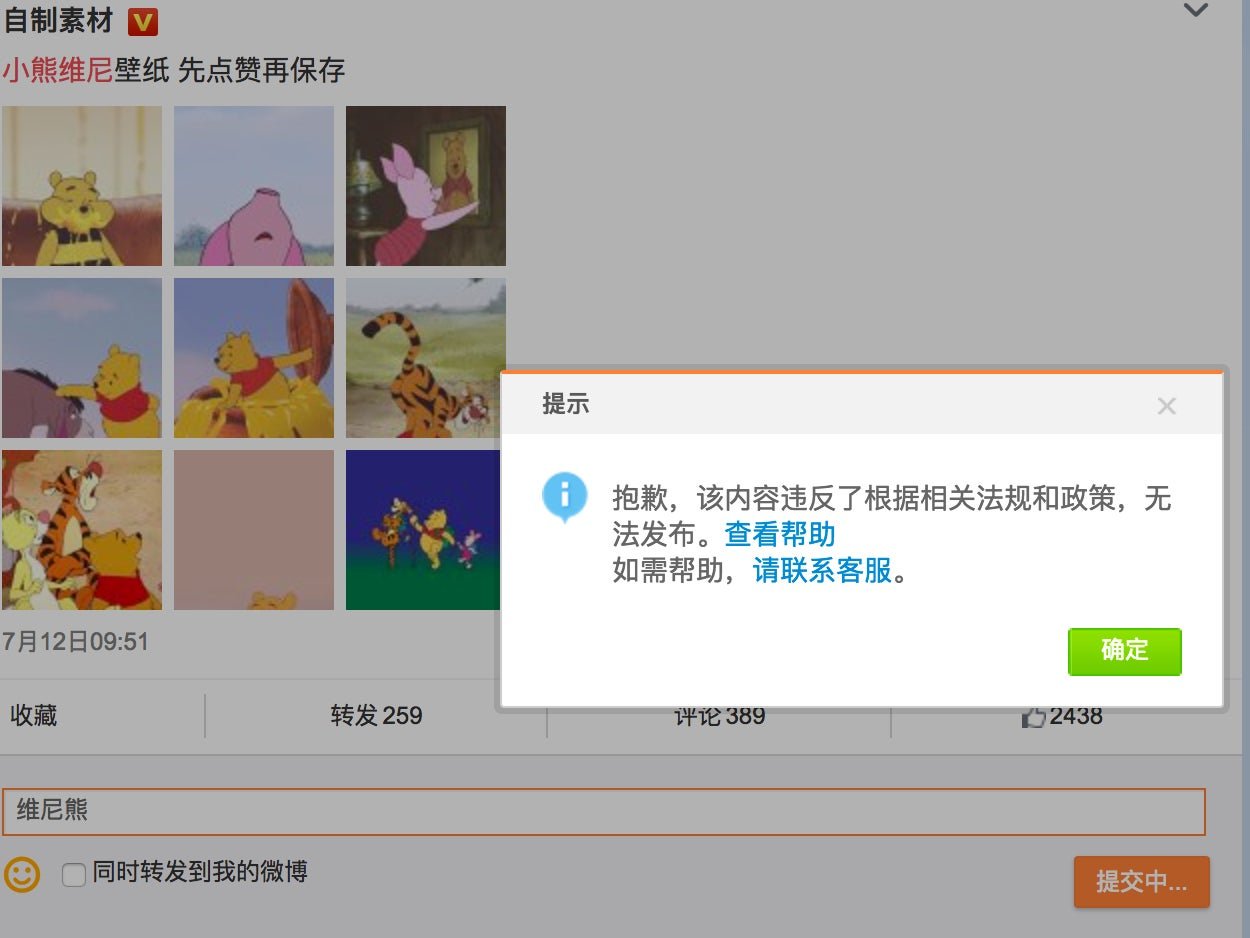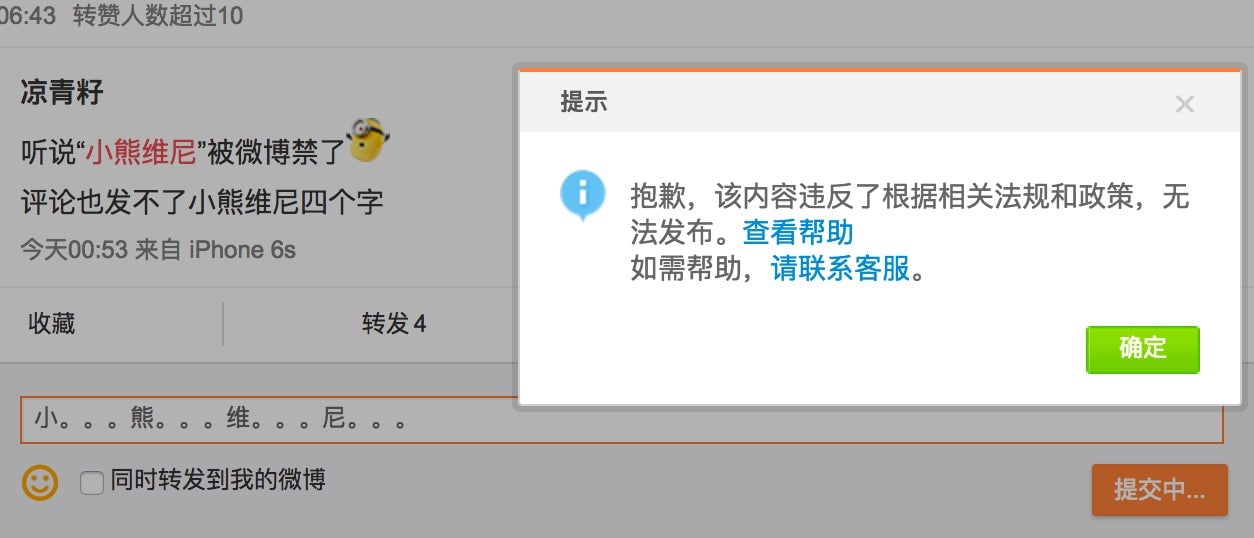China wants people to stop comparing its president to Winnie the Pooh
China is going after Winnie the Pooh—again.


China is going after Winnie the Pooh—again.
A July 15 post on a public account on WeChat, China’s most popular messaging app, said that Winnie-the-Pooh content would be taken down due to its resemblance to a Chinese leader, citing China’s Ministry of Culture as the source of the information. The post has since been deleted by WeChat, for “violations of relevant laws and regulations” (link in Chinese).
The ministry did not immediately respond to Quartz’s request for comment and no notice pertaining to Winnie the Pooh appeared to be available. Tencent, WeChat’s parent company, did not respond to Quartz’s queries.
The post didn’t specify which leader it is who shouldn’t be compared to the tubby cartoon bear, part of the Disney empire. But Chinese netizens are probably quite sure they know.
The beloved character, based on the bear from the children’s books by A.A. Milne, has been a political meme in China since 2013, when Xi met the former US president Barack Obama in California that June. The two were photographed walking the grounds—and soon Chinese internet users were sharing that photo paired with an image of Pooh walking with his friend Tigger. The Financial Times on Sunday reported (paywall) on what seems to be fresh scrutiny of Pooh memes, noting this could be part of increased online censorship ahead of a key Communist Party congress later this year.
Since 2013, Xi has been compared to Pooh in other circumstances. At the 2014 Asia-Pacific Economic Cooperation meeting, the photo of Xi shaking hands with Japan’s prime minister Shinzo Abe was compared to a handshake between Pooh and Eeyore, the donkey. In 2015, a post compared Xi’s parade in a car to inspect troops to Pooh riding in a children’s toy car—and became one of the most censored posts on China’s popular social media platform Weibo that year. The image was shared 65,000 times in a little over an hour before being deleted.
But Pooh’s not quite gone. A Chinese cartoon series based on the character is still available online (link in Chinese).
Over the weekend, some users of the Weibo social media platform have been getting the message that it’s a “violation of laws and regulations” to post comments that include the keywords “Winnie the Pooh” and “Little bear Winnie” in Chinese (维尼熊; wéiní xióng), although others were able to do so. But it looks like users can still make Pooh-related posts and comments if they stick to English. Weibo didn’t reply to Quartz’s request for comment.

